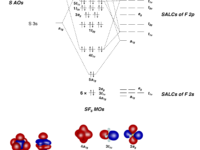It was dinner time on January 24, 2023, and Patrick Clancy had just left his home in Duxbury, MA to pick up some food for his wife and kids. In his 20-minute absence, his wife, Lindsay Clancy, strangled and killed each of their three children with exercise bands before cutting herself with a knife and jumping out of their second-story window.
Earlier that day, Lindsay had taken her 3-year-old son, Cora, to a routine doctor’s appointment. She was a normal mom executing familial duties without issue. Now she lies in a hospital bed, paralyzed, facing three counts of murder and strangulation, with a future of life in prison. But Lindsay’s story is not one-of-a-kind. It bears a striking resemblance to past stories of mothers like Andrea Yates of Texas or Lauren Dickason of New Zealand.
What could make a mother do such unthinkable things to herself and her children?
A mental disorder called postpartum psychosis may be the devil in disguise. Postpartum psychosis (PPP) affects around 1 in 1,000 mothers and can have an abrupt onset even in women with no prior psychiatric history. Even if Lindsay seemed fine that morning from an outside perspective, it is more than likely that she was suffering from PPP on the inside.
Symptoms of PPP can include delusions, hallucinations, disorganized thoughts, and bizarre behavior relating to the mother’s children. PPP also puts mothers at a heightened risk for suicide and infanticide. Because of the complex nature and peculiarity of PPP symptoms, affected mothers often hesitate to speak up and seek help.
This is when disaster strikes.
So, if women like Lindsay, Andrea, Laura, and so many others have suffered from severe mental illness and incompetence, how does the legal system view their crimes?
One striking new law in place in Illinois addresses postpartum depression and psychosis as mitigating factors in criminal sentencing. It also adds a clause for women in prison for infanticide that grants them the opportunity for a re-sentencing if PPP was not assessed during their original court hearings. In essence, if it is determined that a mother was suffering from these illnesses at the time of her crime, her punishment may be reduced in the state of Illinois.
Similar notions have been long-standing outside of the United States, such as the Infanticide Act in the United Kingdom. As of 1938, women charged with the death of their children in the UK do not receive the death penalty and instead face limited charges if they are deemed to be suffering from one of these postpartum mental disorders. Over twenty additional countries have implemented similar infanticide laws, including Australia, Brazil, Germany, Italy, and Greece.
The United States is severely lacking in nationwide legislation that addresses these moments when mentally ill mothers turn to murder. There is currently no federal agreement on how to handle such cases. In fact, Utah, Kansas, Idaho, and Montana do not even have an active insanity defense. And the issue is not whether our society supports this, it is the legal system.
So why are we so far behind?
In the United States, society is ahead of the law. Support for mothers in these unique and heartbreaking situations skyrockets when news breaks. Mothers who have experienced PPP or other postpartum disorders share their stories in solidarity. Husbands and domestic partners publicly share sympathy and forgiveness for their wives, blaming the disorder rather than the person. Communities mourn these children while also praying for the mother’s recovery. In the case of the Clancys, a public fundraiser was even shared and raised over a million dollars to support the family.
It is not our people who do not understand, it is our policymakers.
One way that the United States could demystify postpartum psychosis in the courthouse is through the implementation of the Postpartum Psychotic Experiences Scale (PPES).
Developed and trialed outside of the US in 2023, the PPES is the first of its kind — a validated method to assess whether or not women have experienced or are experiencing psychotic symptoms in the postpartum period, as well as if they are at risk for further developing PPP, postpartum depression, or postpartum anxiety. This scale can be used during routine postpartum appointments to assist doctors in catching cases of PPP before they escalate, while also providing courthouses a fairer system for evaluating mothers.
With the PPES, United States judges can have more peace of mind and make stronger, more evidence-based decisions when sentencing mothers for infanticide. If there is any suspicion that a mother is or was experiencing PPP, a medical professional could assess them using the PPES before or during a court hearing. A mother who scores highly on the scale should be punished less than a mother who did not score but committed similar crimes.
It is also critical to consider psychiatric treatment in correspondence with lessened prison time. In recent decades, the United States legal system has incarcerated more mentally ill offenders than they have offered treatment to. In cases of mentally ill offenders, especially vulnerable mothers experiencing PPP, it is dire that the United States offer proper inpatient psychiatric treatment before and during served time to reduce further risk.
Due to the lack of understanding of postpartum psychiatric disorders at the policy level, it may take time to see action in the US. Until these legal changes are made and implemented, it is even more important to invite change at the local level.
“We should all strive to see the day when mothers with postpartum psychosis receive the proper, educated care that they so desperately need as well as a fair chance in court.”
Mothers – honor your feelings and experiences with postpartum. You are not alone in this, and you are not a bad mother for needing and asking for help.
Families – look out for signs of PPP and other psychiatric disorders in your new mothers. Having a new child in tow can be a wildly exciting and joyful time, but it can also be extremely stressful and troubling.
Friends – support each other. Open and honest communication is necessary to break down barriers and be there for one another.
Everyone – break down the stigma of postpartum mental illness. In order to truly incite change and action, we must encourage the honest testimony of postpartum mothers and support them in seeking treatment early on. Do not judge where you have not walked.
We should all strive to see the day when mothers with postpartum psychosis receive the proper, educated care that they so desperately need as well as a fair chance in court.






